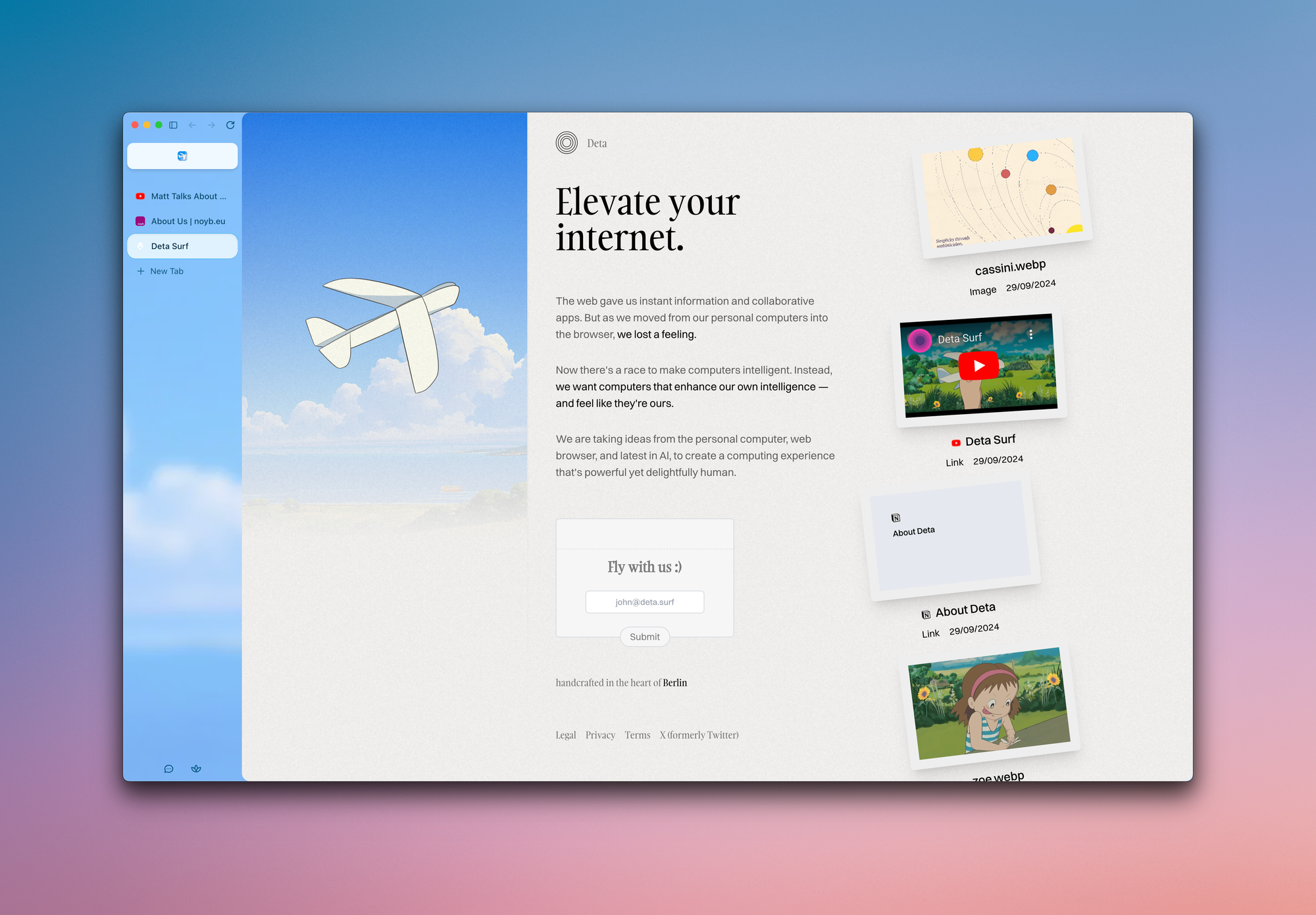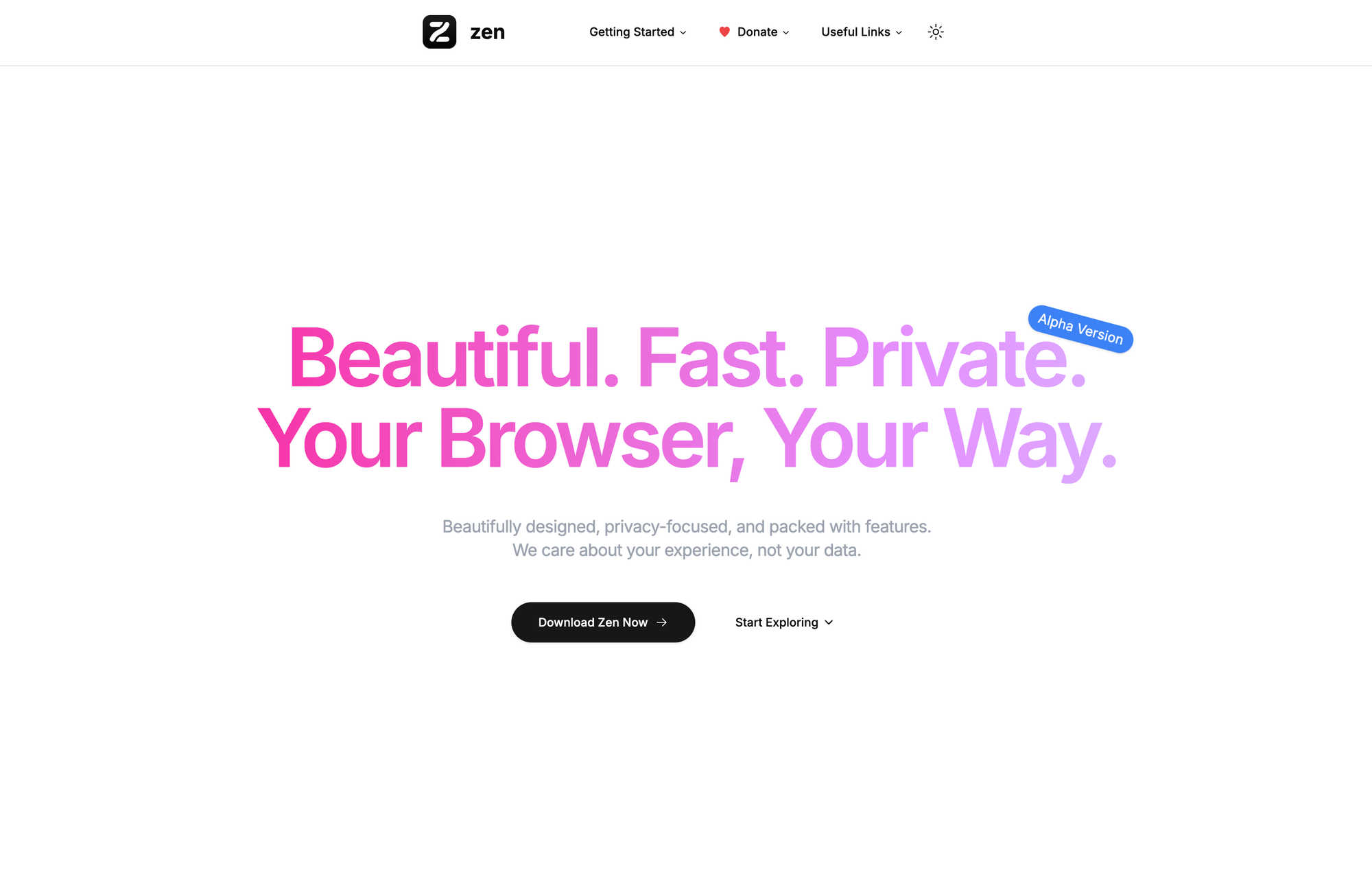The Web of Choices: Why Finding the Right Browser is an such Overwhelming Task
Finding the right browser is a tedious, hard, and overwhelming task. Browser feel weird right now. In this post you can find out why you can rule out a lot of browsers, and what are the ones that excite me right now.

While the calendar app space might be among the most busiest, crowded, and competitive areas, which makes it hard and overwhelming to find the solution that fits your needs, the browser space might be another strong contender when it comes to the overwhelming task of finding the right one, especially when you factor in privacy and security, as well as looking for an ethical solution. Today, there are loads of browsers available. Although, each comes with its own features, strengths, and weaknesses, there is a serious overlap when it comes to the general features, as the browser market has matured, core functionalities largely got standardized.
With the complexities of the modern web, personal preferences like speed, privacy, or customization, ecosystem lock-in, and constant updates, finding the right browser became such an overwhelming task. Besides that, it feels like there has not been that much of a browser innovation in recent years. Loads of browsers have been focusing on performance optimization, security enhancements, and compliance with web standards rather than introducing radical new features. I appreciate a browser that is fast, private and secure, and accessible. However, at the same time I would love to see exciting new approaches powered by the powerful platform the browser created. And let me tell you, a fancy design and tabs organized in a vertical sidebar is not the innovation I am talking about.
As I got on the journey of finding the right browser for my personal needs, I stumbled across a lot of browsers. Some of them were interesting and exciting, others were disappointing, and almost trash. In this post, I want to shine some light on the vast ocean of browsers, what I like and dislike about them, and why I am still on the hunt for the right browser.
Probably the most important factor when it comes to choosing a browser is privacy and security, at least for me. There is literally no logical and comprehensible reason why a browser should be able to track my online behavior, the sites I am visiting, and collect extensible personal data. It is unethical to make money of the data of your users, without their consent.
That alone ruled out Google Chrome for me. Sure, you can change, edit, and customize Chrome's settings to be a bit more privacy-orientated, but what is the point of that? Why not turning those settings on by default, respecting your users' privacy and protecting them while browsing the internet? Besides that, in the short timeframe I used Google Chrome, no matter what computer I was using, it was consuming a bunch of RAM, and felt incredible resource-intensive. What bugs me most about Google Chrome though, is its shadiness. For years, there has been a growing criticism over the invasive ad tracking. Google reacted and stated earlier this year, that they are planing to phase out third-party cookies in Chrome. A couple months later, however, they announced that they will no longer phase out third-party cookies and instead introduce a new experience in Chrome that lets people make an informed choice that applies across their web browsing.
The noyb, a donation-funded NGO based in Vienna, Austria working to enforce data protection laws, in particular the GDPR and the ePrivacy Directive, filed a complaint with the Austrian data protection authority, since the so-called "Privacy Sandbox" gets advertised as an improvement over the invasive third-party tracking, although, the tracking is simply done within the browser by Google itself. Instead of informing the users in an ethical way, Google is tricking people by pretending to turn on an ad privacy feature. They make it really easy to not like them. So, yeah, nothing for me.
A couple years ago, Firefox probably was the most popular, privacy-focused alternative out there. I used it for years, and it always felt right, privacy right out of the box, solid features, a lucid interface, and an overall lovely experience. While using though, I experienced a steady decline of the platform. In 2024 alone, we witnessed Mitchell Baker stepping down as CEO to focus on AI and internet safety as chair of the nonprofit foundation of Mozilla, a major downsizing to focus on integrating AI in Firefox (no-one has asked for those kind of features, especially after the announcement of Mozilla.ai to invest intrustworthy AI), privacy features losing their way in some Firefox updates, Mozilla buying the ad firm Anonym, or the Mozilla Corporation getting sued in US, along with three of its executives, for alleged disability discrimination and retaliation against Chief Product Office Steve Teixeira. Firefox's future looks rough. If you take a closer look at their current careers page, you get the idea that future of Firefox seems to be heavily relying on AI. No, thank you.
Another browser that weirdly gets recommended quite often when it comes to privacy-focused browsers, is Brave. I have absolutely no interest in using Brave, so I keep this short and to the point: Brave is known for replacing advertising and affiliate links with their own, they have been involved in some crypto nonsense, and its founder, Brendan Eich, has been supporting California's fight against same-sex marriage (he is homophobic), and during the pandemic he broadcasted misinformation. So, let us quickly move on.
Thanks to the awesome work of Corbin Davenport and The Spacebar, I was able to rule out Opera as the right browser quickly. In an in-depth post on why people should stop using Opera Browser and Opera GX, Corbin Davenport shares insights on the group of Chinese companies that bought Opera in 2016 for $600 million, how Hindenburg Research released a detailed report about Opera in 2020 outlining alleged fraud and illegal activities, how the development for the past years has mostly been chasing trends, crypto-nonsense-experiments, and a lot more, so definitely give his post a read.
As quickly as I ruled out Brave and Opera, I was able to do the same with Microsoft Edge. Edge has never been an option, it has never been a good browser, since there was a time it felt way more bloated than Google Chrome, it was sloppy developed having a bug that sent the address of nearly every web page you visited to Microsoft's Bing serves, it suddenly started offering you loans while you shopped online, it got plastered with huge buttons for other Microsoft products, and bloated with an annoying sidebar to push even more Microsoft web properties. No wonder, that already in 2023, people were advising to stop using Microsoft Edge. Onto the next one.
When I bought my first MacBook back in 2010, it was natural to explore its native apps, after making the switch to a new operating system. Therefore, I gave Safari a try, however, it was a relatively short experiment, since back then, other browsers just felt way more intuitive than Safari. Over the years, the development of Safari progressed and recently there has definitely been a spike. Nevertheless, it still feels like Safari is trying to catch up with other popular browsers. It does offer a solid set of privacy-focused features though, however, according to a report by The Washington Post, if browser privacy were a sport at the Olympics, Apple would not get on the medal stand. Safari could have been the right option, the right browser I have been looking for. I like its polished and clean design, it fast, and delivers a solid performance. However, there were a couple of quirks that made it hard for me to stick with it.
One thing is that you further get locked into an ecosystem, as Safari is limited to Apple Devices (although there was or still is an outdated Windows version, I am not sure about that). Additionally, there has always been fewer extensions compared to Chrome or Firefox, which might seem trivial, but if you rely on very specific extensions during your daily workflows, it can indeed matter a lot. Besides that, as I am working across loads of different tabs on a daily basis, I love having them vertically stacked in a sidebar, visual and easily reachable all the time. Now, Safari does support that, however, they keep the tabs pinned to the top of the browser, so if I keep the sidebar open, I see them in the sidebar and on top of the browser, which makes it overwhelming and bloated.
I have not wrote anything about the features of those browsers, since it feels like there is not much to write about, they all feel pretty standard, nothing exciting, and no real innovation. However, in contrary to that, over the last couple of years, a new wave of browsers hit the market, which delivered a certain breeze. In a recent post, I already wrote about that wave, which was in the end quite underwhelming and disappointing:
We got Orion, a lightweight, WebKit based browser that has been engineered from the ground up as a truly privacy-respecting app, and then decided to do a partnership with Brave, a browser that replaces advertising and affiliate links with their own, embrace crypto nonsense, led by a guy supporting homophobic legislation, and broadcasting misinformation about the pandemic. We got Stack, a spatial browser that turned tabs into cards, wanted users to organize everything in flows, and that tried to sell 4242 Lifetime Pro Licenses as NFTs, which should earn user annual cash rewards, and custom cursors. We got SigmaOS, a Y-Combinator backed browser, that featured an exciting UI, workspaces, vertical tabs, powerful keyboard shortcuts, but suddenly decided to jump on the AI wagon. We got Arc, the browser that initially did not feel like a browser, it felt intuitive, and got me excited, but with every video they posted, the app became more gimmicky to me. I mean, they shared a video series called We might not make it, and in the first episode, Josh Miller – co-founder and CEO – announced that they raised $50m and flew out their managers to Paris for an offsite to discuss how they will navigate through the upcoming months.
Probably Arc is the most popular new browser out there. It has indeed some interesting features, and I would say that it is a driving force when it comes to generating ideas about what modern web browsing can be. Nevertheless, The Browser Company (the company behind Arc) has not much hinted publicly about what its business plan is. With all its AI-powered features, it feels like they are hoping to become an AI company, and that worries me. But what made me ditch Arc completely was that they do not care about independent creators at all, at least that is the impression I get when I see how their Arc Search or Browse for me feature summarizes the content on an auto-generated page, that is not the original webpage, bypassing the creator, any monetization options, any links, acting as a gatekeeper to the actual source material. That is bonkers.
I am not the only one feeling that way. In March, Matt Birchler wrote about why The Browse Company feels gross to him right now, and John Vorhees wrote about his concerns in MacStories too.
One of the most recent browsers I started using and exploring is Horse Browser*. I dedicated a whole deep dive to it, and wrote about its features, its calm and minimal interface, and what it makes so special to me. Because of no extensions support, no browser profiles, and some other features I appreciate in other browsers, it will not become my main browser as of now, however it comes close to the right browser, just because of the fact that it delivers a cozy home for my interests and the work of my side-projects. It is an exciting piece of software, and I am very much looking forward how it evolves.
I also got access to Surf by Deta just a couple of days ago, and I am currently testing and exploring it too. My first impression was that it very much feels and looks like Arc, because of a very designy sidebar packed with vertical tabs. But besides that, Surf's core features are Stuff, which give you the possibility to save, organize, and find anything that could be important to you, right within your browser, then there is also Chat, which gives you the option to chat with YouTube videos, documents, and websites, and Inline Assist, which lets you highlight or comment on a specific part of a page.

Another browser I recently stumbled across, but have not tried out yet, is Zen. It states that it is fast and private. It is packed with a lot of features that people appreciate in Arc, however with a dedicated focus on privacy. Instead of Chromium, Zen is based on Firefox. Additionally, it is fully open source, community driven, completely customizable, offers a sidebar with vertical tabs, split views, and a lot more. Sounds exciting right? You can also download Zen Browser for free right now, although it is an alpha version, so be aware that there will be a lot of bugs. It seems like, this one checks a lot of boxes for me, so I am excited to give it a thorough try over the upcoming days and weeks as well.

Until then, I will continue using Vivaldi though. I know it is based on Chromium, however, it took a lot of privacy measures. Regarding its features, it also ticks a lot of boxes for me, however all of its customization options feel overwhelming, there are so many tiny UI elements, and in general it could use some of the design polish that other browsers like Safari, Horse, Arc, or Surf feature.
After those more than 2,000 words, it is clear that finding the right browser is a tedious, hard, and overwhelming task. Browser feel weird right now. There is definitely the room for innovation, exploring new and fresh ideas, and challenge the standards introduced by so many browsers. I am excited about Horse Browser, Zen Browser, and Surf, as well as seeing Vivaldi evolve.
Till next time! 👋
Support: Do you have a friend who is looking for inspiration, news about design, and useful tools and apps? Forward this newsletter to a friend or simply share this issue and show some support. You can also show some love by simply clicking the button down below and keep this newsletter a sustainable side-project by buying me a coffee. ☕️ 🥰




Discussion